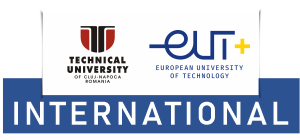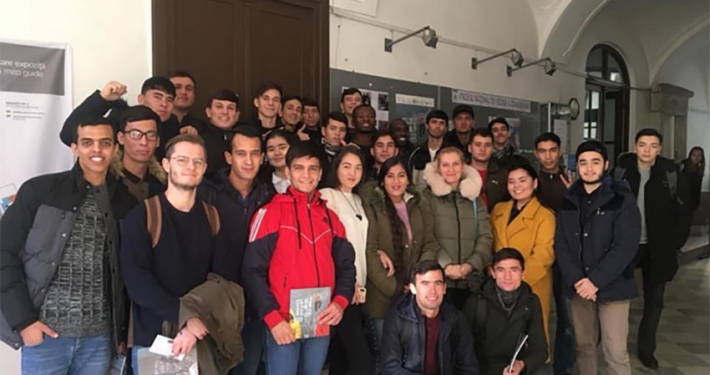For foreign citizens who wish to attend a study program in Romanian at the Technical University of Cluj-Napoca (TUCN), the Department of Modern Languages and Communication organizes the Romanian Language Preparatory Year, in accordance with the accreditation granted by the Romanian Agency for Quality Assurance in Higher Education.
The program aims to ensure the training and development of linguistic and communication skills for Romanian non-native speakers, as well as to foster interest in Romanian culture and civilization. This program is compulsory for the international students who wish to attend bachelor’s, master’s or doctoral study programs, held in Romanian language.
The program is mainly focused on hands-on practice, providing both practical courses in general language and specialized Romanian language. Thus, the program ensures the necessary knowledge for an individual educational path, adapted to each level of training.
The course lasts one academic year. Upon graduation, students take a final exam (10 ECTS credits) and obtain a certificate of completion which guarantees the knowledge of the specialized terminology for B1-B2 language proficiency level, based on the Common European Framework of Reference for Languages. This certificate allows the students to enroll for specific programs offered by TUCN or by any other certified university in Romania.
The curriculum of this academic program includes subjects meant to ensure a real progress in the active practice of language acquisition through thematic and difficulty level variety of activities and contents to be acquired and by approaching linguistic theory from a functional point of view, making use of ordinary situations, as well as of academic and professional contexts.
Subjects:
- Phonetics, vocabulary and grammatical structures
- Oral and written communication
- Romanian culture and civilization
- Writing and composition
- Receipt of written and oral text
- Specialized language
In the last three academic years, the students of the preparatory year have come from European countries – the United Kingdom, Northern Macedonia, Greece, as well as from countries outside the continent – Turkmenistan, Cuba, Sri Lanka, Syria, Palestine, Pakistan, Algeria, Morocco, Rwanda, Nigeria, Kenya, Guinea, Sudan, Benin, Afghanistan, Kazakhstan, Congo, Mongolia.



